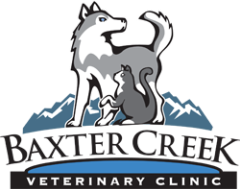Surgery
|
Anesthesia:
Your pet's safety during any anesthetic procedure is our main emphasis. We use established and safe protocols for all of our anesthetic patients. Screening bloodwork, IV catheters, and extensive monitoring are incorporated into our anesthesia protocols. Our clinic utilizes injectable and gas anesthesia, nerve block techniques, as well as constant rate infusion (CRI) protocols. Surgery: We offer a broad range of surgical capabilities, including but not limited to:
|
Frequently Asked Questions:
- What is pre-anesthetic blood screening?
- This is a blood test run here in the clinic prior to surgery. It checks organ function, blood cell counts, clotting factors, and conditions that are not detectable by physical exam alone. It is a useful tool to assure safety during surgery and a healthy recovery. Pre-anesthetic blood screening is recommended for all patients undergoing anesthesia and is required for all patients 8 years of age and older.
- What days can I schedule a surgery?
- We do surgeries Monday through Friday.
- When do I bring in my pet for surgery?
- Check in time is between 7:45 a.m. and 8:15 a.m. Allow 10 minutes to check in with a technician and sign some paperwork.
- What happens when I drop my pet off for surgery?
- After your check in with a technician, your pet will be taken to the treatment area where our staff will check its vital signs and then be set up with bedding in a kennel. Your pet will be examined by a doctor prior to sedation, and we will call when your pet has recovered from anesthesia.
- Can my pet have breakfast the morning of surgery?
- No. You will want to be sure your pet does not have any food after 10:00 pm the night before surgery. Keep water available the night before and morning of surgery.





